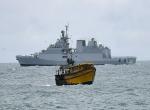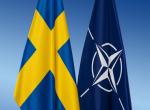India, on Pakistan’s insistence, was excluded from the International Conference on Afghanistan in Istanbul in January 2010. For the “Process on Regional Security and Cooperation for a Secure and Stable Afghanistan”, the second such conference held in Istanbul on November 2 this year, India got invited, signifying Turkish willingness to make amends for the earlier diplomatic snub administered to India, the reduced potency of Pakistani objections and, no doubt, more Afghan assertiveness in India’s favour, not to mention that of the US and other key western countries.
Stakeholders
Turkey’s initiative to gather regional countries on Afghanistan derives from Turkish ambitions to enhance its role in its larger Islamic neighbourhood- a throwback to its Ottoman past. Its US alliance, European Union links, new found profitable Iranian bonds (we are now paying for our oil purchases from Iran through a Turkish bank) and traditionally close ties with Pakistan give it the needed diplomatic space.
The idea of a regional solution to the Afghan problem has been often aired but never pursued seriously because of obvious difficulties. The core of the problem lies in the war being conducted by US/ISAF forces in Afghanistan. The regional countries cannot address the issue of peace in Afghanistan without a say in military matters. If decisions on military strategy, the scope and areas of operations, issues of surge and draw down of forces etc are outside the purview of regional countries, the peace agenda can be hardly dealt with seriously by them.
The US and most regional countries differ on Afghanistan, even if there are areas where there interests may coincide. Is US/NATO willing to defer to their views which question policy; or is involvement of regional countries intended to simply get their endorsement for solutions largely worked out by the principals?
US and Iran have bitter differences. Can they realistically adjust them on Afghanistan? There can be tactical manoeuvring by both sides but even that would be prey to developments on other fronts. Iran is concerned about US military bases in Afghanistan and opposes the US-Afghanistan Strategic Pact under negotiations.
Russia is currently extending logistical support to NATO for the Afghanistan operations through its territory and Central Asia, but it would be concerned about the long term implications for its interests not only of the continuation of US military bases in the region but also America’s Greater Central Asian policy aimed at pulling Central Asia towards South Asia.
China, which faces US military presence in East Asia can hardly be comfortable with American presence in the Afghanistan-Central Asian region which it will seek to progressively dominate with its resource-hunger and financial means.
India would be at ease with an extended US presence in Afghanistan except if US brokered arrangements in Afghanistan gave the Taliban and Pakistan undue political space, and in the ensuing internal strife in the country India’s freedom of manouevre was restricted because of considerations associated with the bilateral India-US relationship.
Until recently US/UK and others, in deference to Pakistani objections, had reservations about an enhanced Indian role in Afghanistan. Now attitudes have changed, quite openly with regard India’s development assistance but in a more nuanced manner with regard to a potential Indian role in training, equipping and capacity building of the Afghan National Security Forces. With NATO withdrawal from combat role in 2014, burden sharing by others by way of providing Afghanistan with economic and security support has made attitudes towards an Indian role in Afghanistan more supple.
The greatest weakness of any regional dialogue is lack of control over Pakistani policy. If the US, with all the leverages it commands, both by way of reward and punishment, is unable to control the Pakistani strategic calculus in Afghanistan, how can the insertion of Pakistan in a regional framework deflect it from its objective to secure strategic depth in Afghanistan, even if it is redefined to mean an assured friendly government in Kabul?
Reconciliation
In actual fact, all regional countries want a stable, peaceful, terror free, religiously moderate, sovereign and independent Afghanistan. The only exception is Pakistan. Its ISI is deeply implicated in the Afghan insurgency, the safe-havens of the Taliban are located in Pakistan, these extremist groups are its strategic assets in Afghanistan for maintaining a grip over the politics of that country so that the internal distribution of power there and its foreign policy defers to Pakistani interests.
The policy of reconciliation with the Taliban is a matter of contention amongst the stakeholders in Afghanistan. The irony is that the US/NATO ousted the Taliban from power in Afghanistan to the relief of its neighbours except Pakistan, and now US/NATO are pushing the policy of reconciliation with the Taliban to the distress of the country’s neigbours, except, again, Pakistan.
Russia, the Central Asian states and Iran are against accommodation with the extremist and obscurantist religious ideology of the Taliban. China’s position, as always, remains ambiguous as its interests tend to trump principles. India, which all along opposed any reconciliation with the Taliban, eventually yielded to Karzai’s manouevres on the stated condition that reconciliation should be with those Afghan militants who renounce violence, cut links with terrorist groups and accept the Afghan Constitution.
This caveat figures in the Istanbul Declaration to India’s satisfaction, but what is its value when Pakistan too is a party to it! As is Pakistan to the call by the Declaration to resolutely combat and eliminate terrorism in all its forms, prevent safe havens for terrorists and terrorism in the region and dismantle terrorist sanctuaries and safe-havens. Pakistan knows that supporting such texts with no legally binding effect does not limit its freedom to do exactly the opposite of their content in practice.
The Istanbul Declaration also echoes the rhetoric that the reconciliation process should be Afghan-led, Afghan-owned and Afghan-driven. How can it be Afghan-led when President Karzai’s bargaining power depends on western military backing and its progress has to be integrated with US/NATO political requirements and the committed draw down?
The involvement of the US, UK, Germany, Saudi Arabia, UAE and Turkey in reconciliation efforts punctures the rhetoric. During her recent trip to Pakistan Secretary of State Clinton openly called on Pakistan either to suppress the Haqqani group or help bring it to the negotiating table.
India
If, as reports suggest, the US might be open to a four way dialogue involving the US, the Afghan government, the Taliban and Pakistan, what does that say for the Afghan-led pretence? The assassination of Burhanuddin Rabbani, the high priest of the reconciliation effort, by the Taliban seriously questions the efficacy of any Afghan led process.
The Istanbul Conference has affirmed India’s regional credentials in Afghanistan. These were strengthened when President Karzai in his speech at the conference singled out Afghanistan’s relationship with India (and Turkey as host) as a model one.
India now has to navigate between the uncertainties lying ahead in Afghanistan that counsel retraint in making concrete long term promises and the demands it will face to make its “long-term commitment to Afghanistan clearer and more specific”- as the Americans have put it- as action moves to the Bonn Conference on Afghanistan on December 5 this year.
-------------------------------------------------------
Published in Mail Today 9th November - 2011









Post new comment